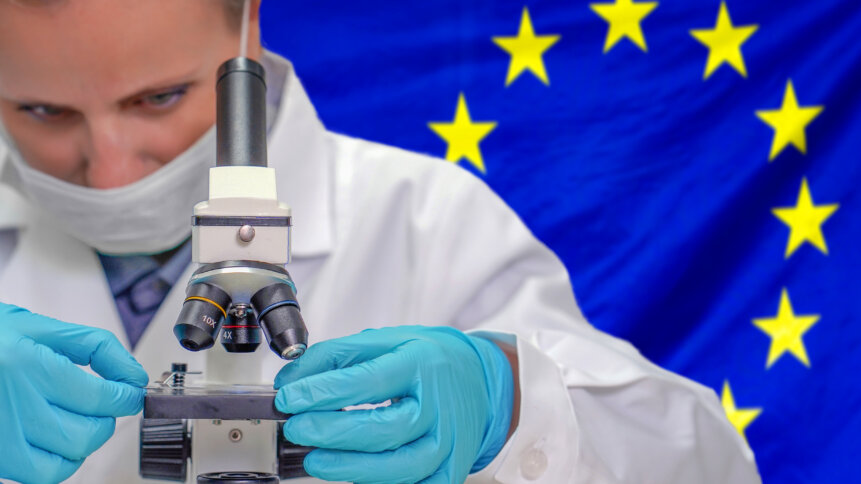Hints that UK scientists could rejoin Horizon program

|
Getting your Trinity Audio player ready...
|
UK scientists were delighted when, on signing the Windsor Framework, commission president Ursula von Der Leyen said she looked forward to UK and EU researchers working together again. The hope is that the new agreement will enable scientists in the UK to rejoin the EU’s €95.5bn Horizon program, which offered leadership of pan-European research groups and access to equipment and facilities, as well as funding.
The UK was kicked out of Horizon two years ago as part of the country’s decision to leave the EU, but had been benefitting from the scheme more than any other EU country. So, the change was a blow. Even though the UK government stepped in to match the EU grant money that was lost, one in six grant holders chose to leave the UK and keep the grants. Often, their teams of research colleagues left with them.
Grant holders who stayed in the UK lost any leadership role they’d taken as part of the grant. It also meant working in their labs was less attractive to the top talent. President of the Royal Society, Professor Sir Adrian Smith said that leaving Horizon meant the loss of more than money: “it’s partnerships. It’s frameworks. It’s the shared use of equipment. It’s the flow of bright young people. All that has gone by the wayside.”
UK scientists have been excited to pursue partnerships further abroad, with the US and Japan particularly attractive, but any benefit from this would be offset by turning the UK’s back on Europe. In reality, partnerships don’t have to be exclusive and to prevent any deal would be damaging to scientific study.
Are UK scientists jumping the gun?
In the research and business sector, many believe that losing scientific ties with Europe undermines the government’s aim to become a “science superpower” for economic recovery. Until negotiations on the Windsor Framework are complete, the government will stay vague about its plans.
However, the Windsor Framework actually doesn’t mention science at all. Technology comes up three times, but only in the context of its use as an enabler of the changes that the agreement entails.
The changes can be broken down into three categories:
- Related to checks required on goods moving into Northern Ireland from Great Britain.
- Related to the issue of Northern Ireland’s VAT and state-aid status.
- Related to the issue of how the protocol is governed and who will enforce the rules.
Of course, any agreements reached between the UK government related to the Europe Union are encouraging and suggest a closer relationship in the future. Yet, as scientists wonder at the Prime Minister’s silence, they might be getting ahead of themselves.
According to Professor Smith, “the minister for science and the new secretary of state [for Science Innovation and Technology] have indicated very, very clearly that association is the goal.” This is a positive, but it sounds very, very clearly in the earliest stages. Our advice to UK researchers: probably worth buying a Danish, German or Swedish language primer as a career investment.









